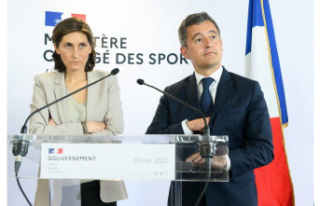This Wednesday, June 1, The Observatory of Inequalities published a new report about France's wealthiest people to help better understand the vague idea of "to be wealthy". The National Institute of Statistics and Economic Studies, (Insee), does not have a wealth threshold. This is different from poverty. Therefore, the association proposes to establish it at 3,673 euro per month for a single individual. After taxes, it is 5,500 euros per couple. This is twice the standard of living. According to the report, 7.1% of the population is considered "rich" in France with 4.5 million French citizens. According to the report:
This definition makes it possible to study the "rich". Their development is especially important. Despite all odds, they are becoming less common. In 2010, 8.6% of the population was made up of wealthy people. Between 2011 and 2014 there was a decrease, then it stabilized between 2014 and 2017, before continuing to decline. This can be explained by Nicolas Sarkozy's unfavorable tax decisions and Francois Hollande's rise in median living standards (mechanically increasing the wealth threshold).
This does not necessarily mean that people are poorer. Between 2014 and 2019, the top 10% of French citizens earned an average 2,200 euro more each year. This is more than the average middle class earns. This is due to the increasing compensation of the top 1% and the ever-increasing dividends that large corporations pay to shareholders. The report is also sliced by the "tax gifts to the richest, voted after President Emmanuel Macron's first election". Who else adds?
Wealth can be defined as more than income. It can also include heritage. The Observatory shows that in order to be considered "rich", one must have at least triple the median wealth, which is more than 490,000. euros. According to the Observatory, 4.6 million French households are "stone-rich". 16% of the population is millionaires, whereas 4% are poor.
82% of the richest 10% own their homes, while the average for the rest is 56%. These rich are average age 56.9, are primarily married (two-thirds of households), and are dominated by senior executives, especially commercial and administrative executives.
There is not data about the wealth distribution between men and women. However, income-wise, 72% of highest-paid employees are men, compared to 28% for women.
For distribution purposes, 16% live in Paris and the Hauts-de–Seine. The Auvergne-Rhone-Alpes region follows with the Lyon metropolitan zone (12%), Nouvelle-Aquitaine (9% each) and Hauts-de-France (9%)
There is a key highlight behind all the statistics and data: the rise in inequality. There are also pay gaps. The report summarizes:
This is especially evident when you consider the top of the basket. According to Proxinvest's ranking, the five highest-paid bosses in France earn between 660 and 1,400 years minimum wage. Eric Vallat, CEO Remy Cointreau's Remy Cointreau, earns 9.7 million euros annually, while Bernard Charles, chief of Dassault Systemes, receives 20.6 million euros.
The total compensation paid to executives in CAC 40 companies was 8.7 million euros last fiscal year, which is unheard of. According to the Economic Analysis Council, the first 500 fortunes were worth 588 billion euros by 2020. This figure was based on rankings from the magazine "Challenges". They had "only" 129billion 20 years ago, an increase of fourfold (356%), and inflation was only 30%.
Heritage reflects this gap between high-income French and those with lower incomes. First, let's look at the side of savings. You must earn enough to save money. Each French person can save on average 4,800 euros per annum, which is 16% of their annual income. The richest 20%, however, save almost 30% by saving 16,000 euros per year.
These savings are the foundation of wealth, which is the embodiment all differences. 83% of French citizens have at least one bank account. Wealth is increasing with real estate, professional property, financial investments, and valuables like cars, jewellery, art, and other valuables. The wealthiest 10% have nearly half (46%) the household wealth.
Inheritance is a major factor in this disparity. Inequality persists because rich parents can give birth to wealthy children. INSEE reminds us that 37% of households have not received an inheritance. This is because it focuses on older people (54% of 60-69-year-olds and 53% for 70-plus). This unequal distribution is compounded by the fact that two-thirds of estates have less than 30,000 euro. Only 13% of estates are greater than 100,000 euros (tax allowance threshold to parent-child transfers).
According to The Inequality Observatory, "receiving 100,000 euro or more almost never occurs in the working class; only 7% inheritances are received by active employees; this is a rare case; it is 11% for non-senior workers." The wealthier someone is, the more they will inherit. 28.4% households with very high assets (over 500,000 euro) will receive more that 100,000 euros. This compares to 4.8% for those with lower assets (between 10,000-115,000 euros).
Even more socially significant is the ability to benefit from an endowment throughout one's life. 25% of those who receive it are part of the top 10% of French wealth. Despite this large inequality, candidate Emmanuel Macron promised to increase the threshold for exemption from inheritance taxes to 150,000 euros as a campaign gift to those in need.












